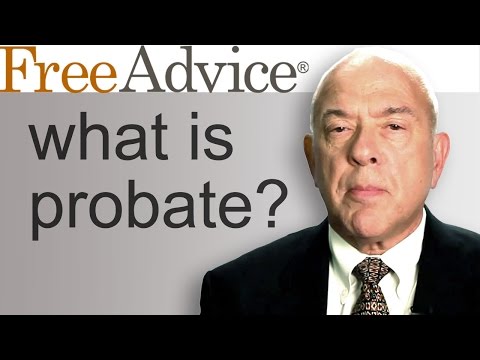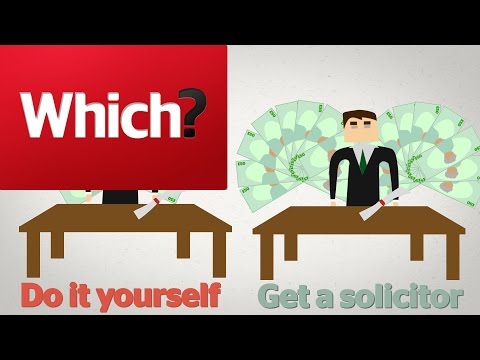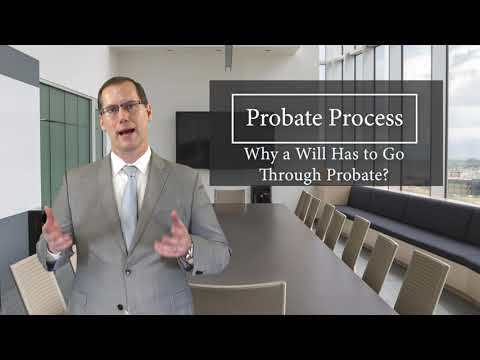Probate is a term that often comes with a bit of a shudder. The mention of it can conjure up images of lawyers, courtrooms, and heaps of paperwork—daunting prospects to even the savviest of individuals. But what if I told you that, with the right guide, maneuvering through the probate process could be as straightforward as following a well-marked trail? Let’s unveil the mysterious cloak surrounding probate and break it down into five easy-to-follow steps. But before we do, let’s determine precisely what probate means and lay the groundwork for effective estate management.

Unveiling the Probate Process: Define Probate in Clear Terms

The Essence of Probate: Laying the Framework for Estate Management
First off, let’s grapple with the elephant in the room: what is probate? In clear terms, probate refers to the formal legal process that recognizes a will and appoints the executor or personal representative to administer the estate and distribute the assets to the intended beneficiaries. Think of it as the official “green light” for the execution of one’s last wishes.
Often misconstrued as an endlessly complicated legal loop, probate is, in reality, a critical component of estate management that ensures a decedent’s assets are handled judiciously. According to recent statistics, probate cases have been on the rise, with more individuals encountering probate court than you might think. Estate lawyers and probate judges continually stress the importance of understanding the nuances of probate, to benefit both the deceased’s wishes and the beneficiaries’ expectations.

Step 1: Acknowledging the Inevitable — What is a Will and its Connection to Probate?
A will—an essential term when discussing probate—is essentially a roadmap for what should happen to one’s estate after passing. But let’s not beat around the bush, “What does probate mean if there’s no will?” I hear you ask. Well, things can get a tad more tangled. In the absence of a will (intestate), the court steps in to call the shots, which might not align with what the deceased might have wanted.
Quoting a legal precedent here can make it crystal clear: In a case like In re Estate of Thompson, it was starkly highlighted that not having a will can lead to an extended and often distressing probate process for loved ones. That’s food for thought for anyone who hasn’t yet penned their will, right?
Step 2: Initiating the Probate Journey — Filing for Probate Estate Validation
Imagine delivering your will to the court as if handing over a ticket at an event’s entrance. This step is the nitty-gritty part where the will is verified, and the estate is formally recognized as a probate estate. Miss this, and you could be heading for a downfall, similar to forgetting your passport on an international trip.
Take the case of the late Great Actor, whose failure to correctly file his will led to significant drama. It’s stories like these that accentuate the value of having a professional, like an estate lawyer, on your side. They know the ins and outs like the back of their hand and make sure your estate doesn’t fall prey to common filing foibles.
Step 3: Cataloging Assets — What Does Probate Mean for Property?
Now, let’s play detective and catalog the property—this part is where you determine What Is considered an asset. Remember how there was squabbling over Celebrity X’s estate? Yep, that’s what we want to avoid. An effective probate process entails meticulous record-keeping of every asset, right down to Grandpa Joe’s treasured pocket watch.
Real estate, vehicles, and other intriguing titled assets need thoughtful appraisal—a critical step in the probate meaning. Inaccuracies are not cute in this scenario; they’re costly mistakes. Some celeb estates lost fortunes due to botched appraisals; don’t let that be your legacy!
Step 4: Settling Debts and Taxes — What is a Probate’s Role in Financial Obligations?
We’re knee-deep in the thick of it now—debts and taxes—the part where a probate scrutinizes the decedent’s outstanding financial entanglements. You’d be surprised at how tricky this step can get. It’s all about who’s owed what, from the IRS to Cousin Ed lending a hand that one summer.
The estate of the legendary Tycoon T serves as a prime example. Who knew settling an estate could resemble a chess game? Probate becomes the arbiter of legal debates, weaving through claims, and ensuring all dues are settled before anyone even sniffs an inheritance.
Step 5: Distributing the Estate — Probates’ Meaning Culminates in Asset Allocation
Finally, we reach the finale—the distribution of assets. This wait can feel longer than the last stretch before a vacation. Here, we dissect the judicial process of handing out what’s left of the estate to the rightful heirs or beneficiaries—often a fusion of satisfaction, relief, and, sometimes, familial strife.
Perfect example? Heiress H’s estate—smooth as silk one minute, a telenovela-worthy battle the next. Executors must walk the fine line between honoring the legal mandate and managing the gauntlet of family dynamics.

The Multifaceted Probate: A Comprehensive Synthesis
We’ve traversed the terrain; now let’s put it all together. Dealing with a probate can feel like you’ve just finished a marathon, but the peace of knowing the decedent’s assets are responsibly managed is priceless. From laying the framework for estate management to the actual distribution, every step bears its unique weight and imperative.
Reframing Perspectives: What is Probate and its Transformative Impact?
But wait, there’s more! Probate is not just a legal term; its impact weaves through the fabric of family heritages and community narratives. It’s not uncommon for the word probate to evoke a collective sigh—particularly in communities feeling the brunt of a legacy of injustice—yet the transformative potential of a well-executed probate often goes unnoticed.
Conclusion: Defining Probate Beyond the Legal Lexicon
As we close this chapter on how to define probate, it’s important to ponder on the future of this pivotal legal process. Legal tech innovations bubble on the horizon, teasing the prospect of a streamlined probate future. One thing’s for sure, probate will continue to evolve, mirroring the ever-changing narrative of how we manage our legacies.

There you have it—a topic that might once have seemed as complex as rocket science, now unraveled into digestible bites. Remember, whether a modest abode or a sprawling estate, each deserves the clarity and care probate provides. Probate might not be the talk of the town, but it’s sure the unsung hero of legacy stewardship.
Get a Grip on ‘Define Probate’ in 5 Easy Peasy Steps
Let’s break it down, folks—the whole “define probate” contraption can be as confounding as trying to understand why meme faces” are so darn popular. Sit tight, because we’re about to tackle the world of wills and inheritances with sass, facts, and a pinch of humor. Buckle up!
Step 1: What on Earth is Probate, Anyway?
Alright, let’s kick things off with the basics. Probate is like the backstage pass to managing a deceased person’s estate—it’s where the magic of deciding who gets what happens. Imagine a stage manager who directs everything from the wings, except this director is a court. And just like any well-respected artist, like Jack Lowden, the probate process has a role that’s crucial, if not immediately obvious to the audience.
Step 2: The Last Will and Testament Unveiling
You could say it’s the moment everyone’s been waiting for—the reading of the will. It’s like hitting the jackpot or finding out you’ve got the same birthday as Jason Mantzoukas. Okay, maybe it’s not that thrilling, unless you’re really into wills. But it’s a big deal because it outlines who the dearly departed wanted to inherit their treasures. Let’s not get scandalous, though, and keep the racist Jokes That are funny out of it—this is serious stuff!
Step 3: Executor in the Spotlight
Ever wonder who gets the honor of sorting out the assets, from the family jewels to the collection of wobbly garden gnomes? It’s the executor, and despite the grim name, their role isn’t to be grim. They’ll be handling the Estates meaning business—the property and goods—and making sure everyone gets their piece of the pie, as laid out in the will.
Step 4: The Bills Aren’t Going to Pay Themselves!
Before anyone starts popping the celebratory year Of The rabbit 2023 champagne, there are debts to be taken care of. We’re talking bills, loans, the electrician’s invoice from that time the holiday lights went berserk. The probate process ensures all the i’s are dotted and the t’s are crossed before any dime changes hands.
Step 5: Passing the Torch—or the Teapot
At last, we land on the good stuff: inheriting meaning. This is when the big reveal happens, and the beneficiaries get their bounty. Whether it’s a secret bank account nobody knew about, or Aunt Ethel’s infamous hot pink teapot, it’s all allocated in this final step. And just like that, you’re either wishing you paid more attention to Aunt Ethel or you’re the proud new owner of her kitschy kitchenware.
So there you have it, my fine friends—the world of probate demystified! Next time someone asks you to “define probate,” you’ll have more answers than there are “meme faces” on the internet. And hey, who knows? You might just be the next probate trivia champion at your local pub quiz. Cheers to that!

Why do you need probate?
Oh boy, dealing with the aftermath is tough, and probate? You’ll need it to clear the air legally, so to speak. It’s basically the official nod you get from the court saying you’re fit to dish out a deceased person’s assets. Without it, you might find yourself stuck between a rock and a hard place when it’s time to pass on Granny’s antique clock or Uncle Joe’s beach house.
Which of the following items will pass through probate?
Alrighty, what’s going to shuffle through probate? Well, think personal items like your cousin’s comic book collection, bank accounts in the dearly departed’s name only, and that sweet sports car they never let you drive. If it’s only in the name of the person who’s gone to the big gig in the sky, it’s going through probate.
What is probate meaning in English?
In plain English, probate is like the referee’s whistle at the beginning of a game. It’s the legal process that kicks off once someone bites the dust, ensuring their will is legit and their belongings are passed on properly. It’s the court’s way of making sure everyone plays fair with the stuff left behind.
Which of the following is a commonly used way to avoid probate?
Want to skip the probate rigmarole? Many do! A trusty, well, trust, is a popular choice. It’s like a magical container for your assets that, with a flick of a legal wand, skips past probate court faster than you can say abracadabra.
Can you withdraw money from a joint account if one person dies?
Okay, so one person has kicked the bucket, but what about their joint account? If it’s with a significant other or someone else, take a deep breath—yes, you can usually withdraw money. It’s like a financial baton pass, smooth and automatic.
What is it called when you get money when someone dies?
Brace yourself, it’s inheritance time! That’s right, when you get money ’cause someone’s kicked the bucket, you’ve got yourself an inheritance. Just think of it as a bittersweet windfall.
Which of the following assets do not go through probate?
Thank goodness, not everything goes through probate! Things like life insurance payouts, retirement accounts with named beneficiaries, and those savvy trusts sidestep the whole song and dance—you can breathe a sigh of relief there.
Is a joint bank account part of an estate?
Joint bank accounts? They’re like a buddy movie; when one star bows out, the other takes over the show. So, no, they’re typically not part of an estate that’s got to wrangle with probate. The surviving owner usually keeps things rolling without missing a beat.
Is life insurance part of an estate?
Life insurance loves to play by its own rules. It directly pays out to your beneficiaries, so it doesn’t mingle with your other estate assets or play the probate game.
What is another word for probates?
Need a synonym for probates? Think “estate administration.” Sounds fancy, huh? Just another way of saying probate without saying probate.
Why do some dislike the probate process?
Oh, the probate process gets some serious side-eye for several reasons. It’s like waiting for paint to dry – slow as molasses and often hitting your wallet where it hurts. Plus, it’s like airing your dirty laundry in public—all out there for the world to see.
Which of the following is a disadvantage of the probate process?
Speaking of downsides, one whopper of a disadvantage of probate is the cost. Cha-ching—it can chow down on the estate’s value like nobody’s business. Plus, it’s slower than a snail, which can drive anyone bananas.
Which of the following accounts avoid probate upon death of an owner?
Accounts that say “catch you on the flip side” to probate, when the owner kicks the bucket, are like team players wearing an “I’m with the beneficiary” T-shirt. Think things like payable-on-death accounts or retirement accounts with designated beneficiaries – they’re like a magic carpet ride right to the new owner.
Can an executor be a beneficiary?
Executors who also wear the beneficiary hat? Yep, it’s a thing—like double-dipping at a buffet, perfectly legal as long as the will says so. They can wrangle the estate details and still get their piece of the pie.
What if my husband died and I am not on his bank account?
If hubby’s gone to the great beyond and his bank account is just in his name, you’re not on it—uh-oh. It’s like trying to get into a club without being on the list. You might need to court-see—it’s probate time—or prove you’ve got rights to the moolah through other legal paths. Hang in there, it’s roundabout time!



